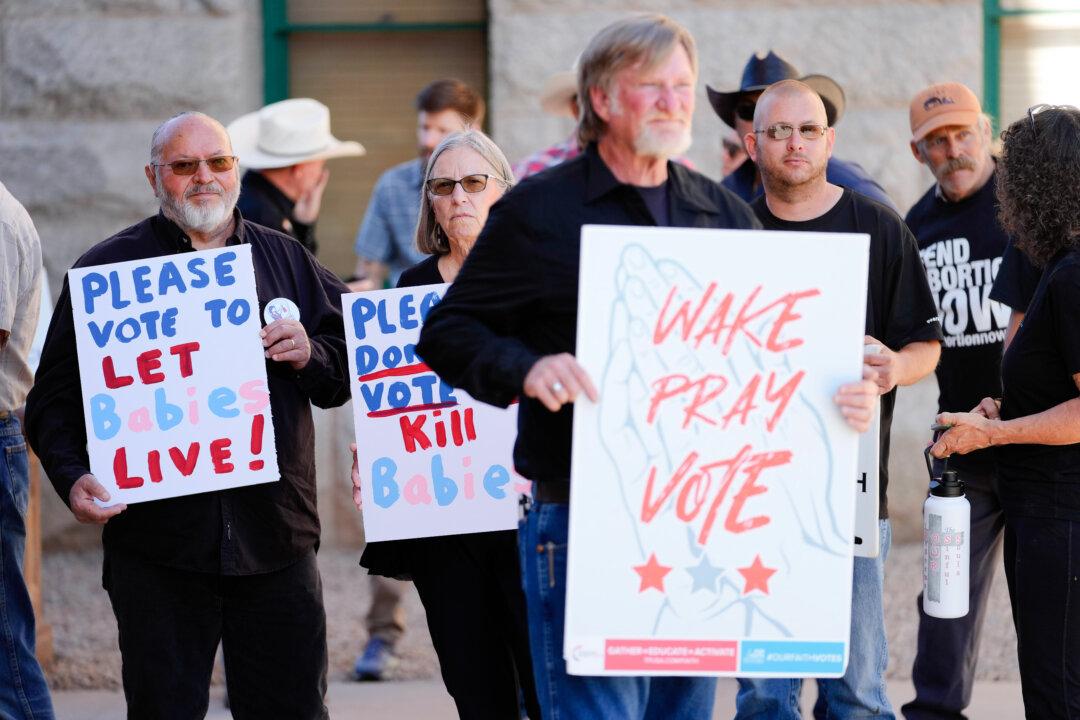Arizonans’ two-year fight over a near-total abortion ban will come to a close shortly with the law’s impending repeal. However, the larger battle over abortion in the state is just beginning, Gov. Katie Hobbs said.
“Arizona women should not have to live in a state where politicians make decisions that should be between a woman and her doctor. While this repeal is essential for protecting women’s lives, it is just the beginning of our fight to protect reproductive healthcare,” Ms. Hobbs said on May 1 after a divided Arizona Senate passed the repeal in a 16–14 vote.





